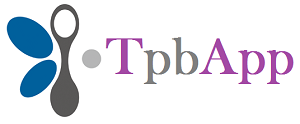Don’t Let Remote Working Be The Reason Your Stop
Moving to a remote workforce model can come as a shock to any organisation. Oftentimes, this change in structure can cause other areas of the organisation to take a turn for the worse as eyes are taken off the ball and colleagues begin to adapt to change. Whether working remotely as a team or individually, tying job performance to measurable outcomes provides both the employee and employer with a clear view of progress.
Sticking to your business goals whilst operating a remote workforce is critical to business success and attaining these goals requires team effort and commitment. Unfortunately, a remote workforce can also bring a lack of commitment and effort, making it more important than ever to engage, track progress and ensure your employees and fully contributing to and aligning with your business objectives.
Below are some of our most effective steps HR professionals and managers should follow to ensure their remote team is operating effectively and supporting business growth and development.
Implement SMART Goals
SMART goals and KPIs help individuals identify specific goals that can be measured with metrics and reviewed over a certain period of time. When your team is operating remotely, most of their communication will be done online and many of their decisions are data-driven — meaning there are a lot of opportunities for goals to be set that can be measured in numbers.
Whether your goal is to reach a certain number of blog readers, review so many data points or create so many reports, committing to a figure helps to measure and evaluate each goal more effectively. Whilst remote working, transparency and documentation of these SMART goals is more important than ever, providing a direction and a path to success for team members who work remotely.
Make Bitesize Goals
Breaking a larger objective or business goal into smaller tasks or subgoals can make progress easier to see, manage and measure. This breakdown of an objective or goal into smaller chunks can be referred to as key performance indicators (KPIs), a set of defined, measurable outcomes that can be tracked through smaller tasks that indicate you are on the path toward achieving the final goal. These should be fully aligned with your overall business goals and support the vision and mission of the organisation.
Using this method, business owners and managers that are operating a remote workforce can see more clearly if a goal is on its way to being met on time, or if employees are struggling and the goal needs to be reevaluated.
Regular Reviews & Communication
Identifying measurable goals and outlining the expectations for your remote team is a great
start and identifying when a project or task may not be on a trajectory toward timely completion. One of the largest hurdles in performance management is the lack of regular communication, so much so that the objective often becomes out of date or even irrelevant.
SMART goals are time bound and often involve multiple stages before being able to complete the goal in full. Therefore regular reviews with your team on a weekly, monthly and quarterly basis are essential to keeping everyone on track while ensuring that subtasks are completed and that communication within the team remains strong.
It is important to set a date in the diary clearly, and ensure it works for everyone involved. Establish when review meetings will be held during the initial goal-planning phase in order to measure progress consistently as well as keep team members accountable and focused, working steadily toward the goal completion date and metrics.
Read more: IT Services in Lexington, Kentucky
Finally, achieving business development and growth goals, either as a team or on an individual basis, cultivates a workplace culture of clear communication, job satisfaction and greater motivation toward the completion of future goals, all of which will set your company up for success in 2020 and beyond.

